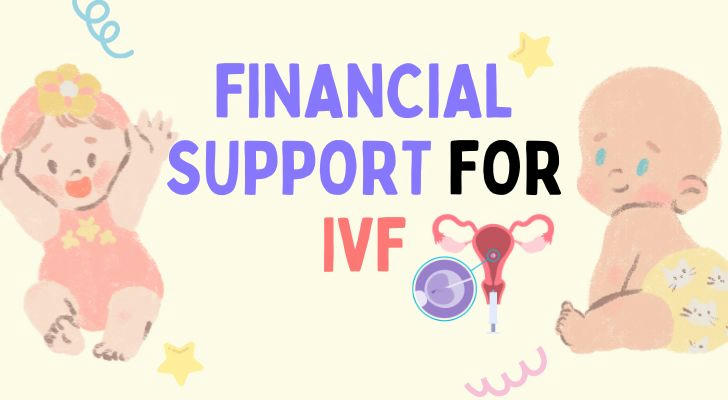How to Get Funding for IVF Treatment: A Simple Guide to Grants and Support Programs
Starting IVF can be life-changing—but it’s often expensive. The good news? There are IVF grants and charities, along with government funding for IVF, that help individuals and couples access treatment without worrying about the cost. Whether you’re just starting out or looking for additional financial help, this guide shows how to apply for IVF grants and find the support you need.

Why More People Are Seeking IVF Assistance
In the U.S., around 1 in 8 couples struggle with infertility. While IVF offers a powerful path to parenthood, the cost remains a major barrier. A single cycle can range from $12,000 to $15,000—and most families need more than one. Insurance coverage is limited, making grants for IVF treatment and government funding IVF programs essential for many.
Fortunately, more people today are learning how to get IVF treatment without worrying about the cost, thanks to the growing availability of grants, low-cost fertility clinics, and public support programs.
Understanding IVF: First, Second, and Third Generation Treatments
Before seeking financial aid, it helps to understand the types of IVF available:
First-generation IVF (IVF-ET): This traditional method involves fertilizing eggs with sperm in a lab, then transferring the embryo to the uterus.
Second-generation IVF (ICSI): A single sperm is injected directly into an egg, typically used when male infertility is a factor.
Third-generation IVF (PGT): Also known as Preimplantation Genetic Testing, this method screens embryos for genetic abnormalities before implantation—often recommended for carriers of genetic conditions.
Understanding the differences can help you determine treatment costs and choose appropriate financial aid programs.
IVF Grants and Charities That Can Help Reduce the Cost
Numerous organizations offer grants for IVF treatment—but one of the most established is The American Fertility Association (AFA). AFA provides partial financial assistance and is deeply involved in fertility education and awareness efforts. In June 2025, it plans to expand its outreach by offering direct cash funding to qualified families, helping reduce IVF costs nationwide.
Other trusted IVF grants and charities include:
◾ The Baby Quest Foundation: Offers need-based grants to support IVF and medication expenses.
◾ The Gift of Parenthood: Provides both financial and emotional support to those undergoing fertility treatment.
◾ Fertility Within Reach: Helps applicants locate IVF government funding programs and shares tools like crowdfunding strategies.
◾ CNY Fertility: Known for being a low-cost fertility clinic, it also awards monthly IVF grants. Details vary, so check often.
◾ Paying for IVF: A reliable online resource for comparing IVF funding options and learning how to apply for IVF grants.
These charities and programs play a key role in helping families pursue fertility treatment without worrying about the cost.

Who Can Apply for IVF Grants and Support?
Most programs offering IVF grants and charities have specific eligibility criteria, such as:
◾ A confirmed medical diagnosis of infertility
◾ U.S. citizenship or permanent residency
◾ Proof of financial need
◾ Medical records (e.g., diagnosis or treatment plan)
◾ A personal story or letter of intent
Each program differs, so read application requirements carefully. Learning how to apply for IVF grants successfully often comes down to preparation and persistence.
Applying for IVF Grants: Where to Begin
Learning how to get IVF treatment without worrying about the cost begins with preparation. Follow these steps:
1️⃣Find the right grant or program. Look into several options to match your financial and medical profile.
2️⃣Prepare documents. You’ll need proof of income, medical records, and a personal statement.
3️⃣Meet deadlines. Some government funding IVF programs or charities have limited application windows.
4️⃣Be thorough. Incomplete forms or vague answers may delay or disqualify your application.
Knowing how to apply for IVF grants—and putting care into your application—can improve your chances of success.
Final Thoughts: IVF Grants and Government Funding Make a Difference
IVF can be emotionally and financially challenging—but help is available. From government funding for IVF to trusted IVF grants and charities, more families are now accessing the treatment they need. Whether you're applying for IVF grants or exploring low-cost clinic options, these programs don’t just ease financial strain—they open the door to new beginnings. If you’re considering IVF, don’t let cost be the reason to hesitate. Explore your options, apply for support, and take the next step in your journey to parenthood.
